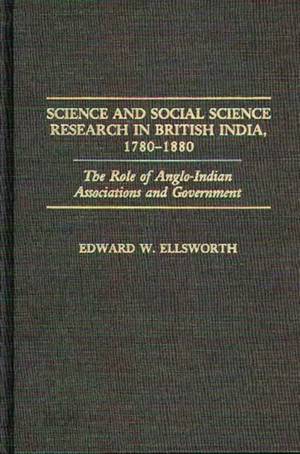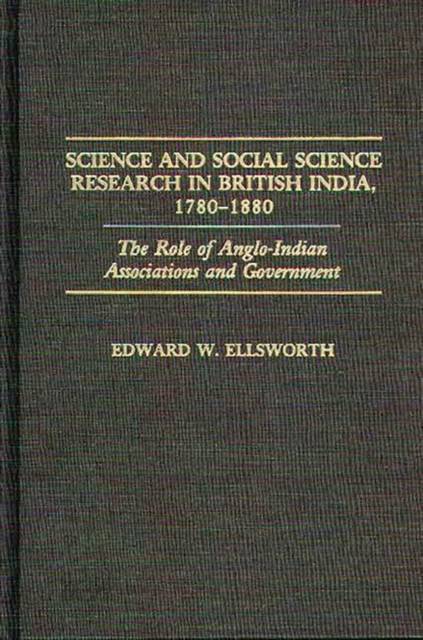
- Afhalen na 1 uur in een winkel met voorraad
- In januari gratis thuislevering in België
- Ruim aanbod met 7 miljoen producten
- Afhalen na 1 uur in een winkel met voorraad
- In januari gratis thuislevering in België
- Ruim aanbod met 7 miljoen producten
Science and Social Science Research in British India, 1780-1880
The Role of Anglo-Indian Associations and Government
Edward W EllsworthOmschrijving
This important volume by Edward W. Ellsworth examines the conflicting interests, programs, and goals which influenced the emergence of Anglo-Indian social purpose and scientific organizations between 1780 and 1880. The intellectual energy that promoted the growth of these multi-racial associations and their efforts toward reform was often diverted by British government structures, financial limitations, and Indian resistance. Ellsworth's study traces how, despite these obstacles, these Anglo-Indian groups became the foundation for both the official and reformist programs which were integral to the formation of the Indian Congress at the end of the 19th century.
After a brief historical introduction, Ellsworth offers an overview of social science ideology from British and Anglo-Indian perspectives with specific emphasis on the progressive intellectual development, both social and personal, advanced by members of the Bengal, Bombay, and Punjab associations. The author traces government involvement in select areas of science associational research and the relationship of that research to official policies and regulations, agribusiness goals and the commonweal. He also deals with key elements of Anglo-Indian science associational programs shaped by needs of the community but also by the British science world and British and Anglo-Indian economic interests. The creation of a colonial science is thus outlined. Concluding with a selected bibliography and full index, the book proves a comprehensive account of an intellectually vital period in Indian history.Specificaties
Betrokkenen
- Auteur(s):
- Uitgeverij:
Inhoud
- Aantal bladzijden:
- 240
- Taal:
- Engels
- Reeks:
Eigenschappen
- Productcode (EAN):
- 9780313266744
- Verschijningsdatum:
- 21/05/1991
- Uitvoering:
- Hardcover
- Formaat:
- Genaaid
- Afmetingen:
- 162 mm x 242 mm
- Gewicht:
- 557 g

Alleen bij Standaard Boekhandel
Beoordelingen
We publiceren alleen reviews die voldoen aan de voorwaarden voor reviews. Bekijk onze voorwaarden voor reviews.









